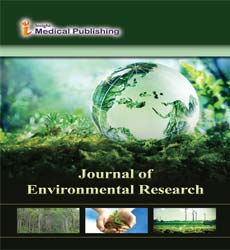Need for holistic data for holistic climate change mitigation and adaptation
Abstract
Statement of the Problem: In India there are many agencies that aim to aid sustainable development. Most of these agencies are federal or state government owned and is operated individually or under a specific ministry. Each agency, in order to formulate policies and rules, collect data and manages it. For example, a water resources department collects data on reservoir water levels, water demand and water supply for sustainably managing water supply schemes. Therefore, agencies are divided into themes/focus areas or departments and data is housed in each of these units individually. Formulation of management/performance indices (e.g. drought index, flood index, unmet demand index) requires good observation data, and requires seamless/open access to data. It is therefore important to identify/develop frameworks that are sensitive to issues on data sharing, thereby creating unique pathways for collaboration towards a win-win scenario. On such scenario is the use of Big Data from remote-sensing platforms along with observed data for groundwater resources assessment. I used such frameworks for understanding, in India, the impact on groundwater due to increased agricultural productivity, pollution of groundwater, groundwater recharge due to canals, check dam performances and flood mitigation using Ganges aquifers. Under such scenarios, there is a need to identify big-data tools and methods that can be used to assess research gaps. In this presentation, potential methods to collect and collaborate data for rural management will be discussed.
Open Access Journals
- Aquaculture & Veterinary Science
- Chemistry & Chemical Sciences
- Clinical Sciences
- Engineering
- General Science
- Genetics & Molecular Biology
- Health Care & Nursing
- Immunology & Microbiology
- Materials Science
- Mathematics & Physics
- Medical Sciences
- Neurology & Psychiatry
- Oncology & Cancer Science
- Pharmaceutical Sciences
